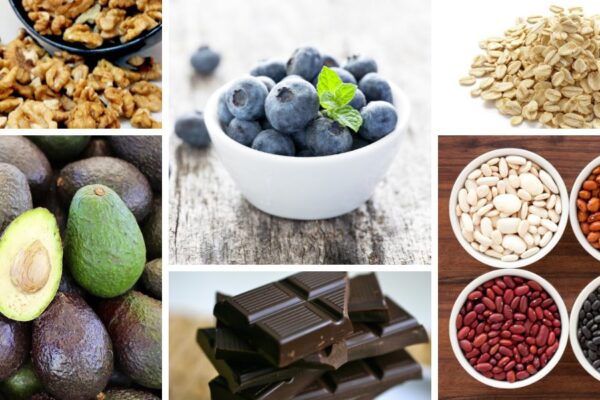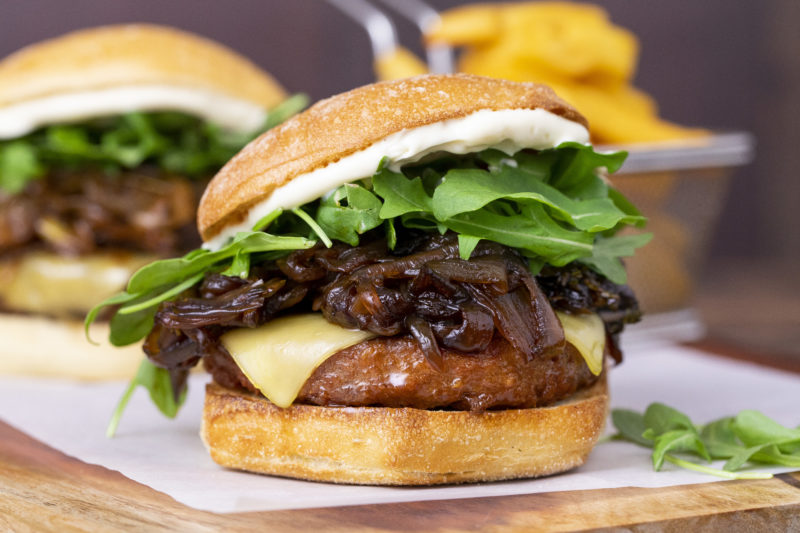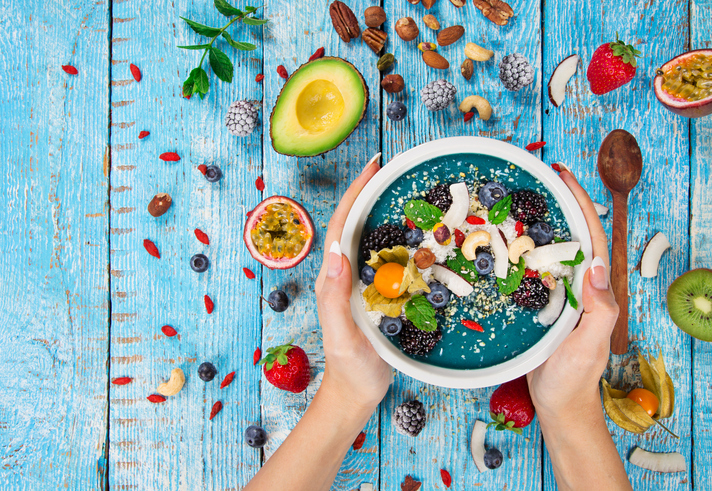Everyday Prevention: Best Nutrition and Lifestyle Tips
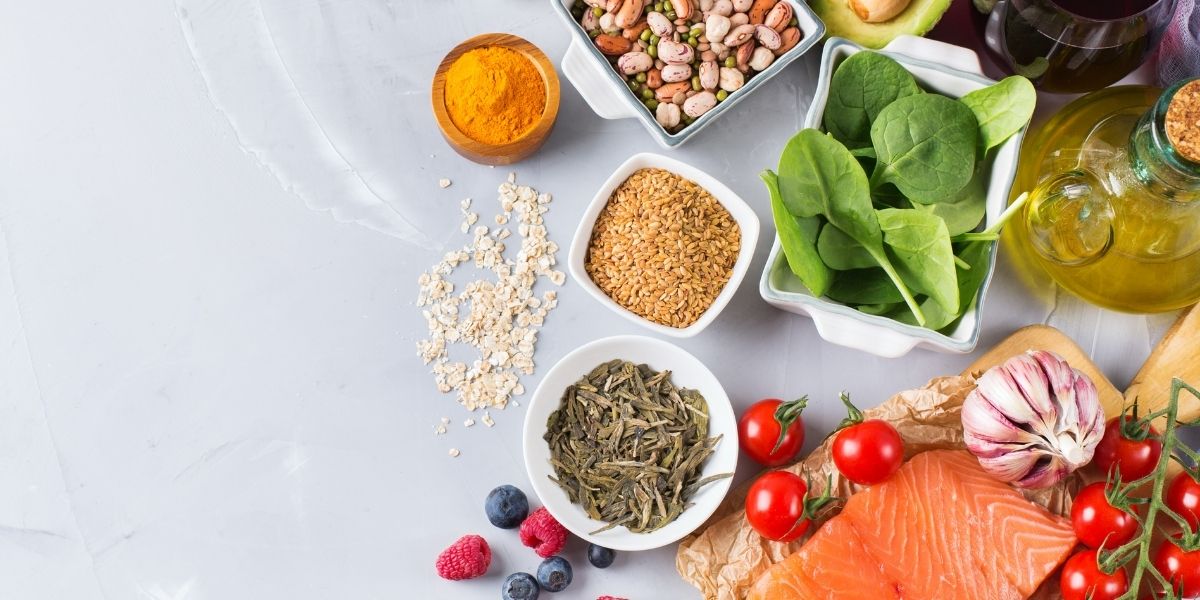
We like to think, at least around here, that if you’ve landed on our website, perhaps joined one of our courses or free events, that you are on the journey of optimal health. All of us here at the Academy of Culinary Nutrition are on our own health journeys. Some of us have been at it for decades, some of us are just getting started. We know that at times, it may seem like achieving good health is inaccessible or that the path is overwhelming. The reality is that it’s about taking small steps every day to live, what we call, an everyday prevention lifestyle.
While there are many things we can’t predict, there are also a vast number of ways we can take action to build health and prevent disease. Prevention is key – and everyday preventative practices can have a massive impact on our day-to-day lives.
In this post, we’re digging into the nutrition and lifestyle tips that support everyday prevention.
What Is Prevention?
The definition of prevention is the act or practice of keeping something from happening.
Many illnesses can take years to progress from early, almost unnoticeable symptoms to full-blown disease. The trouble is, many of us don’t really think of health and disease until something is wrong. We may consider the absence of symptoms as the definition of health – but it’s more than that. Health is a sense of vibrancy and resilience. Health, at its core, has us overflowing with energy and vitality, physically and mentally. It’s a feeling of wellbeing, and there is a lot that is working against us right now.
Some of the most common major risk factors that can lead to illness include things we know of like:
- smoking
- processed foods
- high intake of processed fats and sugar
- overwhelming levels of stress
- lack of physical activity
- air pollution
- excessive alcohol consumption
- excessive screen time
- lack of connection with nature
- lack of human connection and sense of community
- insufficient hydration or from poor sources
Changing our habits and practicing preventative health measures can help us thwart, counter and reverse many common health problems. This is where culinary nutrition and lifestyle can play a huge role!
What is everyday prevention?
In our view, true prevention is about taking action and building health as much as we can every single day.
One benefit of living a preventative lifestyle is we can help avert disease and discomfort in the first place. And feeling good day to day is a win too. Of course, there are no guarantees that you’ll never experience an injury or illness. A preventative lifestyle is like having a health bank account; you want to accrue a decent amount of savings that you can draw upon in an emergency without going into great debt. And if you do get sick, chances are you’ll recover more quickly due to resilience.
There is no greater investment you can make than in your health.
Nutrition Tips for everyday prevention
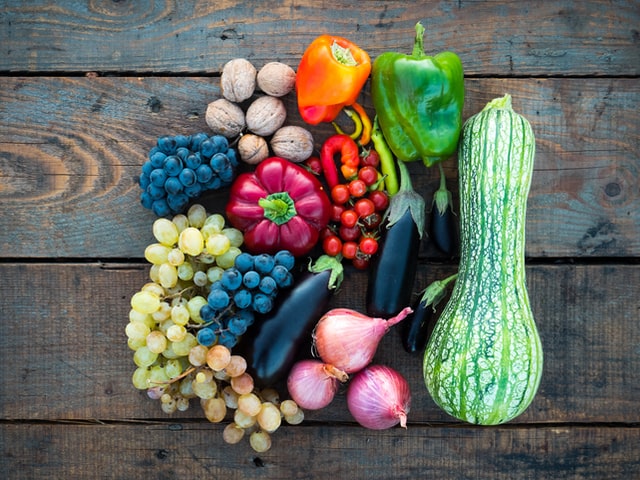
Photo: Dan Cristian-Padure on Unsplash
As an online culinary nutrition school, food is one of our primary tools for preventative health. Since we consume food daily, usually several times a day for meals and snacks, there are plenty of opportunities to load up on foods for prevention. These are some of the aspects to keep in mind when eating for preventative health.
Support The Immune System
Our immune systems are an amazing line of defence against illnesses that may strike us down, from the common cold to chronic conditions like autoimmune diseases.
How to Do It: Try cooking with these flu-preventative foods and these simple immune-supporters. If you’re ready to learn how to make tinctures, try this incredibly potent fire cider recipe.
Reduce Inflammation
Inflammation is a chronic problem for many people. Stocking up on anti-inflammatory foods can help with acute injuries and long-term inflammatory conditions.
How to Do It: You can grab our complete Anti-Inflammatory Diet and Lifestyle Guide, which includes a free downloadable shopping list.
Eat An Overall Nutrient-Rich Diet
You never know what nutrient you’re going to need! Eat a varied diet with the essential macronutrients (protein, fat, complex carbohydrates) and micronutrients (vitamins and minerals) for good health. We like to eat seasonally and locally – this assures we’ll get a variety of foods and nutrients, and we cook with the Clean 15 to limit our exposure to chemicals.
Fortify Your Brain and Nervous System
Reinforcing your nervous system benefits your mental health and reduces the risk of degenerative brain disorders. This allows you to process and eliminate mental and physical stress. Plus, remember that what happens in your brain affects your entire body! For example, there is a close link between the brain and the digestive tract, so it’s equally important to eat foods that support digestion.
How to Do It: Try these foods that enhance your mood and mental outlook.
Balance Blood Sugar
Skipping meals or consuming sugary foods can send our blood sugar levels soaring and crashing. This leads to an imbalance of hormones, including stress hormones, that affect our ability to handle challenges, and can lead to high blood sugar or diabetes.
How to Do It: Focus on meals and snacks that contain complex carbohydrates, protein, fat, and fibre to keep blood sugar levels on track.
Stay Hydrated
Fluids are essential to our health. They help our digestive system, joints, skin, liver and kidney function as well as move important nutrients throughout the body.
How to Do It: Water is our favourite way to stay hydrated, but you can also opt for herbal teas, hot elixirs, cold elixirs, nut or seed milk, smoothies, infused water, or bone or vegetable broth. Don’t forget there are many fruits and vegetables that are hydrating, too.
Cook Food From Scratch As Much As Possible
Packaged and processed foods contain a multitude of ingredients that detract from our health, including refined sugars, gluten, dairy, vegetable oils, artificial colours and flavours, and more. Cooking food from scratch helps you to manage what’s in your meals and avoid the ingredients that damage our resilience.
How to Do It: If healthy eating seems intimidating, learn a few simple steps to get started with healthier cooking and start building a healthy pantry.
Lifestyle tips for everyday prevention

What we eat is only one piece of the puzzle (though it’s an important one!). Our activities when we’re not eating matter just as much.
These are some important lifestyle tips to keep in mind for preventative health.
Exercise
Our bodies aren’t meant to sit in front of computers all day. (Using your thumbs on your smartphone, no matter how speedy you are, doesn’t count as a workout.)
How to Do It: While working up a sweat is great for detoxification (remember, our skin is our largest elimination organ), gentle exercise every day helps to improve circulation, bring oxygen to our tissues and lift our mood. Try walking, cycling, rebounding, dancing, or whatever physical activities you love.
Sleep
Decent slumber aids our immune system, reduces inflammation, improves our mood and helps with memory and cognition.
How to Do It: Try these 11 foods for better sleep.
Rest
The concept of rest goes well beyond sleeping (the time we aren’t awake). Incorporating regular rest into your life and doing activities that relax and calm you are important.
How to Do It: Find (and practice, that’s the key!) activities that cultivate rest.
Spend Time in Nature
Being in nature offers loads of benefits, including lowering stress and blood pressure, supporting the immune system, reducing pain and improving heart health.
How to Do It: Go outside! If you like growing food, learn how to garden in a yard or on a balcony using our introductory guide.
Pursue Meaningful or Enjoyable Work
We understand that any job, business, volunteer work or parenting/caregiving isn’t always sunshine and roses. However, if you’re spending a large chunk of your time each day doing something you enjoy, it’s beneficial to your physical and mental health.
This meta-analysis of close to 500 studies shows the interconnectedness of job satisfaction and health, and that liking what you do boosts both your mental outlook and physical health. Enjoyable work improves employee health, happiness and self-esteem; conversely, this study concluded that those who reported the lowest job satisfaction had the poorest health.
How to Do It: We are endlessly inspired by the work our Culinary Nutrition Experts are doing in their own communities! (Maybe this is your year to join us and leap into a new career.) As just a few examples:
- 15 Awesome Cooking Class Instructors
- 15 Food Products by Culinary Nutrition Experts
- Thriving With Cancer: Meet Jenny Bradley
- Starting a New Career in Culinary Nutrition: Meet Shiru Macharia
- Teaching Families to Cook: Meet Amy Stoddart
- Becoming a Food Writer: Meet Michael Tanenbaum
- How a Health Coach Leveled Up Her Skills Using Culinary Nutrition: Meet Esther Ban
Cultivate Joy and Happiness
This enhances your physical and mental health, and happiness may be associated with reduced mortality.
How to Do It: How to Retrain the Brain for Happiness
Find Friendship and Community
Cultivating friendships and social communities helps improve physical health, reduces loneliness, bolsters self-esteem, and enhances our satisfaction with our lives. Our friends spur us to keep our healthy habits on track, and can even help us live longer. And let’s not forget that active health prevention, and taking care of your own health to the best of your ability, is a critical part of community health.
How to Do It: Try having a potluck dinner, start a cooking cooperative, or a virtual dinner. If you’d like to meet more like-minded friends, we have nearly 3,000 Culinary Nutrition Experts around the world who would love to chat all things food and health with you!
How to Stay Motivated and practice everyday prevention
With the large number of tips we provided, it may seem demanding, burdensome or overly ambitious to live for prevention. That’s not the case! You don’t need to do 80 things perfectly each day to support your health. Get started with one, and build more into your life.
Every action, whether small or large, has an impact and contributes to your overall health. Determine which preventative health measures are practical, maintainable and enjoyable for you on a daily basis. That’s going to look distinct for every single one of us – but each and every effort is worth it.
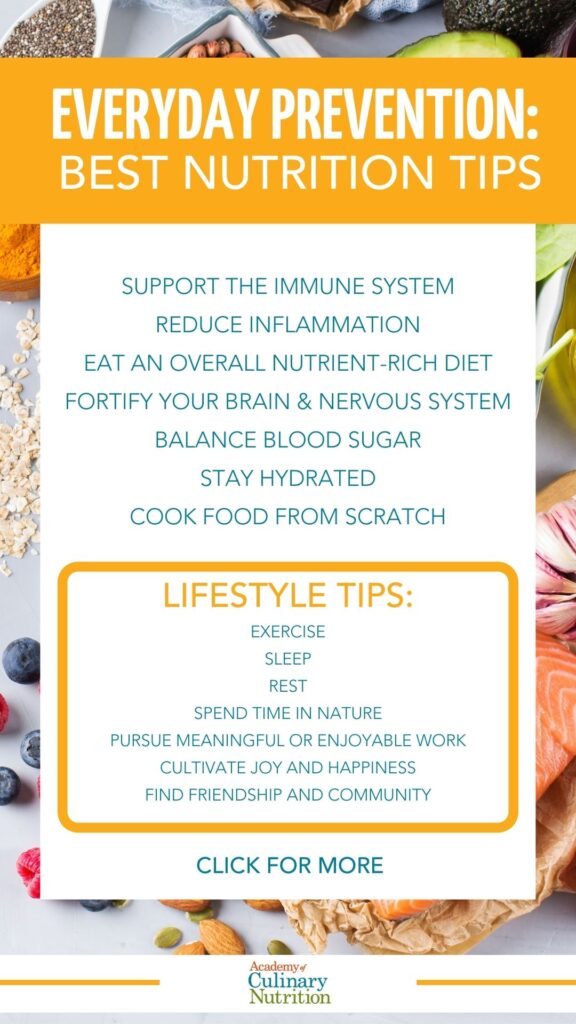
Free Resource Library
Enjoy more than 40 downloadable guides, recipes, and resources.





















